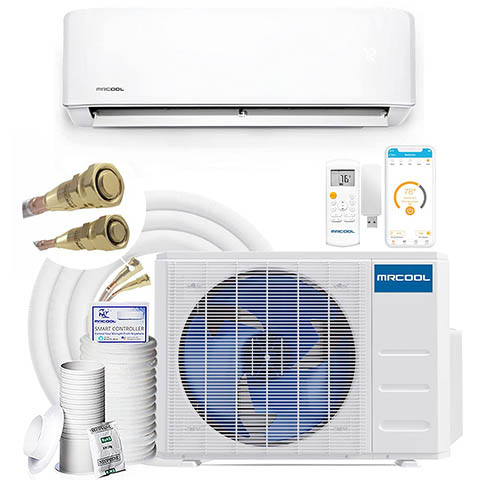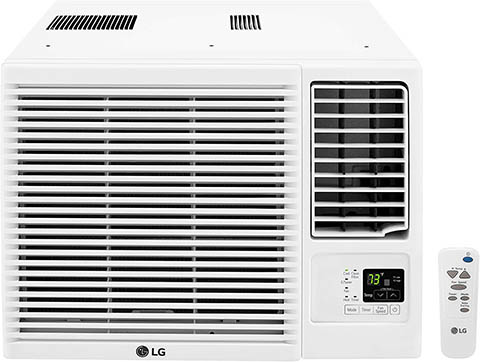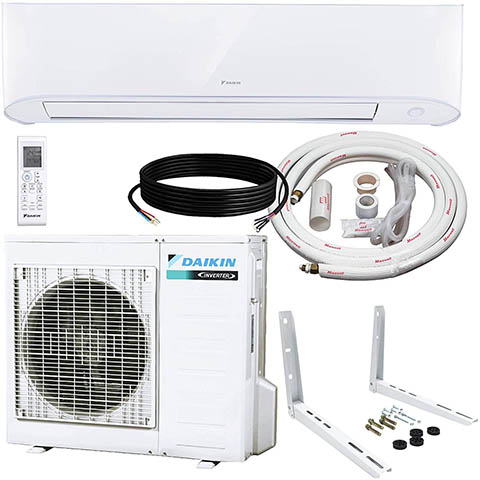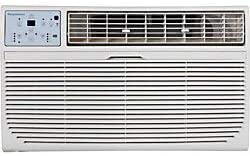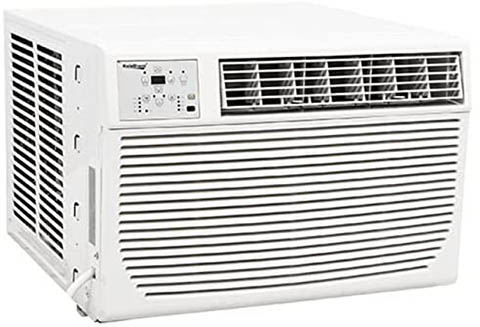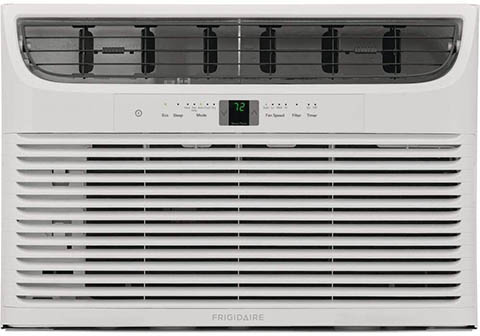6 Best Heat Pumps in 2025 – Reviews & Top Picks
-
Shea Cummings
- Last updated:
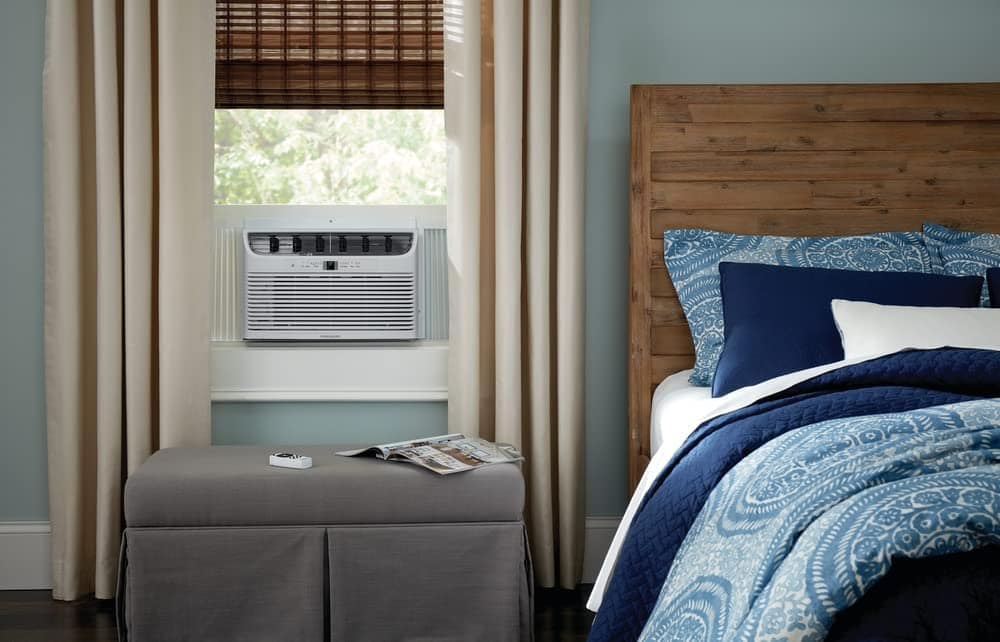

No one likes to suffer through the sweltering summer heat, and sometimes it’s nice for an added burst of heat on the coldest winter nights. There was a time when owning an air conditioner or heat pump was only for the wealthy—not anymore. Sure, there are still some expensive options, but there are also some affordable options available.
Below we’ve written reviews on six of the top picks to choose from. Plus, we’ve also included a comprehensive buying guide to give you all the information you need to make the right purchase.

A Glance at Our Top Picks (2025 Update)
| Rating | Image | Product | Details | |
|---|---|---|---|---|
Best Overall
 |
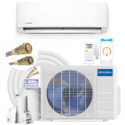 |
MrCool Ductless Heat Pump |
|
CHECK PRICE |
Best Value

|
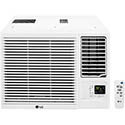
|
LG Window-Mounted Air Conditioner Heat Pump |
|
CHECK PRICE |
Premium Choice

|
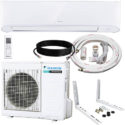
|
Daikin Ductless Mini-Split Heat Pump |
|
CHECK PRICE |
|
|
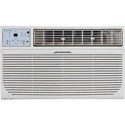
|
Keystone Through-The-Wall Air Conditioner Heat Pump |
|
CHECK PRICE |
|
|
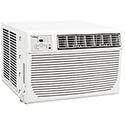
|
Koldfront Window Air Conditioner Heat Pump |
|
CHECK PRICE |
The 6 Best Heat Pumps
1. MrCool Ductless Heat Pump – Best Overall
| Brand: | MrCool |
| Available British Thermal Units (BTUs): | 12K–36k |
| Control Type: | Manual, remote, mobile app |
This ductless heat pump from MrCool is our choice of the best overall heat pump for a few reasons. In addition to its great heating and cooling abilities, the pump is available in a large range of BTUs. So, no matter what size you’re putting it in, it’ll get the job done.
Plus, if you’re looking for something with “smart” technology, this model is loaded with it. It will automatically adjust itself according to the settings you’ve provided for it. You can also download the mobile app to control it from your phone.
You might think that a system like this would need to be professionally installed. However, this unit’s design makes it reasonably easy for the average DIYer to do it themselves.
- Available sizes for almost any room
- Easy DIY install
- Equipped with smart technology
- Controllable from anywhere with Wi-Fi connectivity
- Expensive
2. LG Window-Mounted Air Conditioner Heat Pump – Best Value
| Brand: | LG |
| Available British Thermal Units (BTUs): | 2K–12K |
| Control Type: | Manual, remote |
If you’re on a smaller budget, this window-mounted air conditioner heat pump from LG is the best system for the money. For an extremely reasonable price, you get an excellent window air conditioner unit with heating capabilities.
The BTU rating is slightly lower for the heating function, so it will heat a smaller room better. Also, you will need a 230-volt electrical connection because the standard 115-volt outlet will not work. But if these things aren’t a deterrent, this is a great option that you can easily take in and out of the window as your needs change.
- Inexpensive
- Easy to install
- Multiple cooling, heating, and fan speeds
- Quiet 50-decibel (dB) operation
- It takes up the use of a window
- Heating isn’t as good as cooling
3. Daikin Ductless Mini-Split Heat Pump – Premium Choice
| Brand: | Daikin |
| Available British Thermal Units (BTUs): | 9k–24k |
| Control Type: | Manual, remote |
Like our top pick, Daikin also makes an excellent mini-split heat pump. Multiple options exist depending on your needs. You can get one with heating and cooling functions or a cooling-only system.
These heat pump systems are a bit cheaper than the MrCool ones. However, they don’t have the same smart technology or Wi-Fi connectivity, which can be a super handy feature to have. That being said, for the money, you’re getting a solid and dependable heating and cooling system that’s easy to install and runs quietly.
- Outdoor condenser unit for quiet operation inside
- Energy-efficient
- Easy DIY install
- Titanium apatite photocatalytic air-purifying filter
- Expensive
- No smart technology
4. Keystone Through-The-Wall Air Conditioner Heat Pump
| Brand: | Keystone |
| Available British Thermal Units (BTUs): | 12K A/C, 10.6K Heat |
| Control Type: | Manual, remote |
If you’re not going the ductless route and prefer to have the functionality of your windows remain, a through-the-wall system is a good option. One issue is that the installation is a little bit more advanced than a window or split system. So, you’ll have to hire someone if you’re not used to more complex DIY tasks.
While this air conditioner does have some heating functionality, it doesn’t heat as efficiently as it cools. However, the heating is still rated for around a 450-square-foot room. So, it should keep the average-sized bedroom toasty. Plus, maintenance is easy with the front filter placement once it’s installed.
- Temperature sensing remote
- Easy access filter for cleaning
- Multiple fan speeds for cooling
- Requires a hole in the wall for installation
- Heating is not as efficient as cooling
- 230-volt receptacle required
5. Koldfront Window Air Conditioner Heat Pump
| Brand: | Koldfront |
| Available British Thermal Units (BTUs): | 8K–25K |
| Control Type: | Manual, remote |
For under a thousand bucks, you can get a window system that will heat and cool any room in your home with ease. However, if your primary use of this air conditioner will be for its heating function, one of the previous options may suit you better.
That being said, if you’re after a unit that will primarily keep you cool with the bonus of being able to throw some heat as well, this is a great option. Being a window-mounted unit, the installation is reasonably easy. But you do lose the functionality of your window in the process.
- Energy efficient
- Easy to install
- Heating and cooling or cooling-only models are available
- Takes up window space
- 230-volt receptacle required
- Heavy
- The heating function is not as powerful as cooling
6. Frigidaire Window Air Conditioner Heat Pump
| Brand: | Frigidaire |
| Available British Thermal Units (BTUs): | 8K |
| Control Type: | Manual, remote |
If you have a small room you are trying to heat, this window air conditioner with supplemental heat is a decent buy. Several units on this list will perform better, but if you’re on a very tight budget, this system is affordable and does its job.
The biggest problem with this system is its size. At only 8,000 BTUs, it’s only capable of cooling a room that is around 150 to 350 square feet, and the heating capacity will be on that lower end. It’s also not Energy Star-certified. This could be a deal-breaker for many people trying to make eco-friendly decisions.
- Inexpensive
- Easy installation
- Only suitable for small rooms
- Cools better than it heats
- Heavy
- Not Energy Star-certified
Buyer’s Guide: Buying the Best Heat Pumps
There are many heat pump and air conditioner/heat pump combos on the market today. We’ve selected and reviewed these six in hopes of making your decision easier. However, we’ve compiled a small section of considerations to help make your choices even more straightforward.
Heat Pump Considerations
Your Reason for Installing a Heat Pump
To figure out the best option for your situation, you must narrow down how it will be used. Are you trying to heat and cool one small room, or are you trying to accomplish that for the entire house? How you answer this determines how big of a system you should get.
For example, if you have a small 300–400 square foot room, an 8–10,000 BTU system will be sufficient. In contrast, if you want to heat and cool several rooms, you’ll want to upgrade to a larger split or through-the-wall system that is 15,000 BTUs or more.
Ease of Installation
Another consideration is how easy the system is to install. Many of the residential heat pumps on the market today are DIY-friendly. But they aren’t all easy. A through-the-wall system requires a hole to be cut in the wall, and many systems need upgraded electrical outlets.
If you’re an experienced DIYer, you shouldn’t have too much trouble with most units.
Noise Ratings
As a general rule, the sound is quieter with these systems when the price goes up. Depending on the room you’re installing it in will determine how loud you are okay with. Just about every system you look at will have a dB rating to give you an idea of how loud it is.
Efficiency Ratings
Energy prices keep going up. So, how efficient a system runs is essential for the long-term cost. Two factors determine efficiency. First, how the unit is designed determines how much energy it uses.
On the other hand, making sure the unit is the right size for the room is important. Because if you get one that is too small for the room, it doesn’t matter how efficient it is if it keeps running all the time because it can’t keep up with the room’s needs.
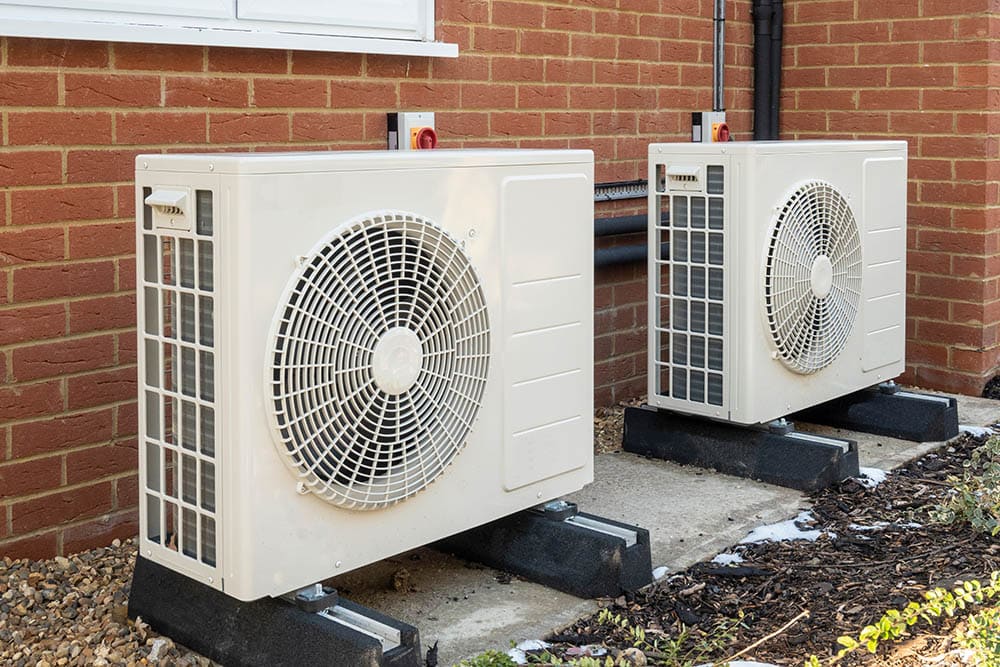
FAQ
What are BTUs?
BTUs stands for British Thermal Units, and it is a form of measurement that measures energy. Essentially, the BTU rating on an air conditioner or heat pump will tell you how powerful it is. The higher the BTU rating, the more energy it can produce to heat or cool the air.
What is the difference between a heat pump and an air conditioner?
Put simply, a heat pump heats and cools while traditionally, an air conditioner would only cool. However, many air conditioners on the market have heating functionality, bringing them more in line with what a heat pump is capable of.
Do heat pumps use more energy than an air conditioner?
A heat pump typically runs more efficiently than an air conditioner. They will use far less energy for the same amount of cooling or heating. Therefore, they are usually a more economical option if your budget will allow the higher price tag.

Conclusion of Best Heat Pumps
If you don’t care how much you spend and just want the best of the best, MrCool’s ductless heat pump is the top pick. With the available options, you can heat and cool any room or rooms in your home with ease.
On the other hand, if you’re looking for something a little more budget-friendly that still does a great job heating and cooling, the LG window-mounted air conditioner heat pump does a good job. The biggest downside is losing the use of a window.
We hope that these reviews have given you the information you need to make an informed and wise purchase choice for a heat pump because even the cheapest ones are still over $400, and that’s no small chunk of change.
Contents
